It’s a desktop exercise, aimed at testing the readiness and response of the search and rescue sector.
About 60 officials fill the office, located in Tauranga’s CBD. They’re made up of police, customs, intelligence, civil defence, the regional council and more, all with a role to play in this well-oiled machine.
In their hypothetical exercise, a boutique cruise ship has been stranded on the Astrolabe Reef, around 20km off the shores of Tauranga. About 256 people are on board, and their mission is to get them home safely.
The smell of coffee wafts through the office. Some have been working since 6am, when the ship theoretically was first stranded.
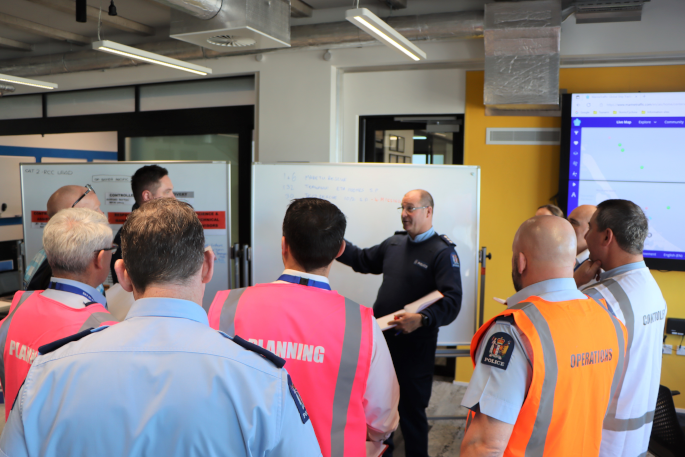
Police gather for briefings in the training room. Photo: Taylor Rice/SunLive.
It’s all led by a small Wellington-based agency, NZ Search and Rescue Secretariat, who have been planning this series of training operations across the country for five years.
Among the team is Tania Seward, a senior communications and prevention advisor, now roleplaying both as an “angry journalist wanting information” and a “police media spokesperson” during the exercise.
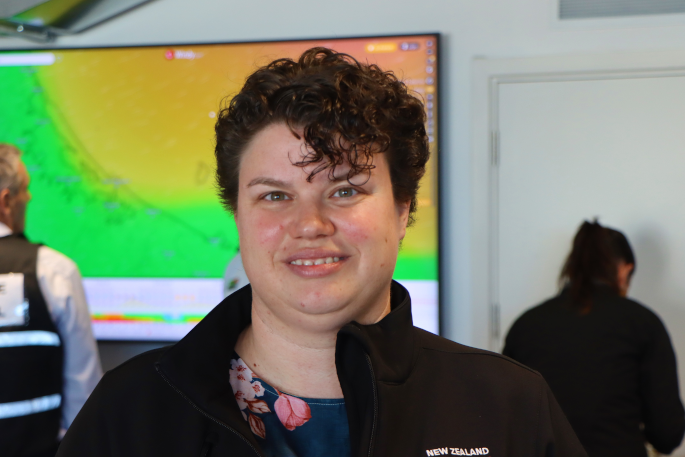 NZ Search and Rescue Secretariat senior communications and prevention advisor, Tania Seward. Photo: Taylor Rice/SunLive.
NZ Search and Rescue Secretariat senior communications and prevention advisor, Tania Seward. Photo: Taylor Rice/SunLive.
Real police, working on the training exercise under different roles, are lining up to speak to her.
In the middle of scheduled briefings on the status of the ship, she says part of the job of intelligence is to search the internet for relevant information, involving news articles and social media.
She even has helped make fake TikToks, with an actor playing the role of a bored passenger who is complaining the ship has stopped moving, and is without power.
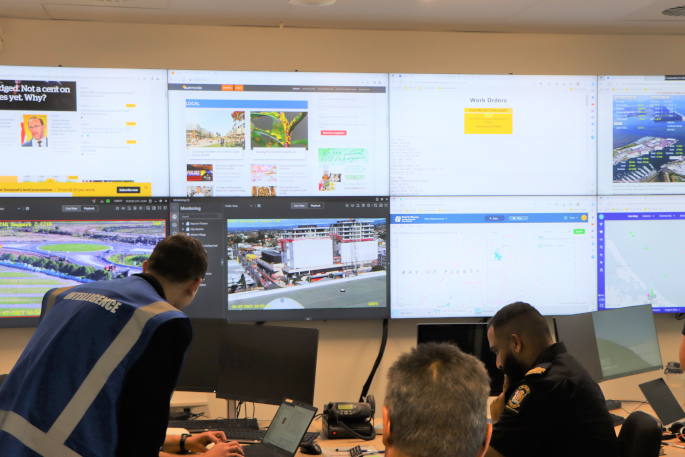 The training exercise involves delving into social media and news websites for information. Photo: Taylor Rice/SunLive.
The training exercise involves delving into social media and news websites for information. Photo: Taylor Rice/SunLive.
The TikToks are played throughout the day, with the passenger slowly realising the severity of the situation, providing valuable on the ground insight for those orchestrating the rescue.
“We look at people’s habits with social media and try to make this a realistic experience,” says Tania.
“Something like this could happen tomorrow, and if it does, we need to be equipped with how to gather information.”
NZ Search and Rescue Secretariat principal advisor Andy Greig says there is great importance in preparing for a nationally significant search and rescue event.
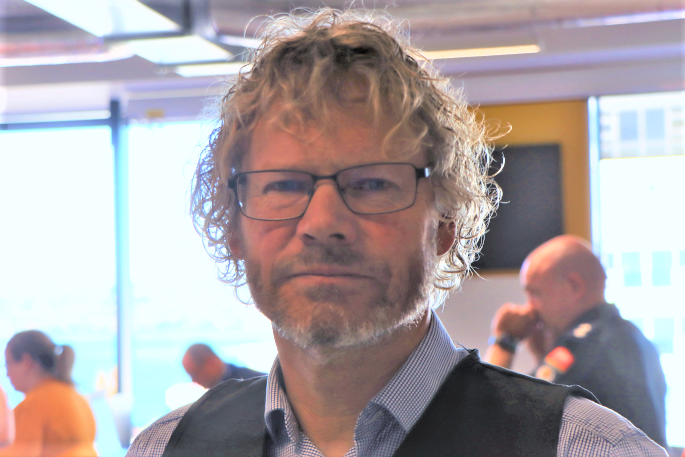 NZ Search and Rescue Secretariat principal advisor Andy Greig. Photo: Taylor Rice/SunLive.
NZ Search and Rescue Secretariat principal advisor Andy Greig. Photo: Taylor Rice/SunLive.
"For example today we've got a boutique cruise ship with roughly 250 people on board, which has been stranded on the Astrolabe Reef.
"Yes, there is the immediate search and rescue, like figuring out what we're going to do with the passengers and crew, and how we're going to look after them, but we also need to consider things like hospitals, immigration and customs, because this ship has come from offshore.
"The entire project is about search and rescue, but it's also about integrating with a whole group of different agencies, which is why we've got a whole raft of people in here playing the game with us."
"In New Zealand we're really good at small scale search and rescue, but something big like this hardly ever happens, so we need to test our policies and procedures in case the real thing happens, even though we hope it doesn't."
Bay of Plenty police search and rescue manager Phil Gillbanks says the training exercise has provided a great opportunity to pull everybody together, and to test their process contributing to a search which is theoretically being remotely run by the Rescue Coordination Centre in Wellington.
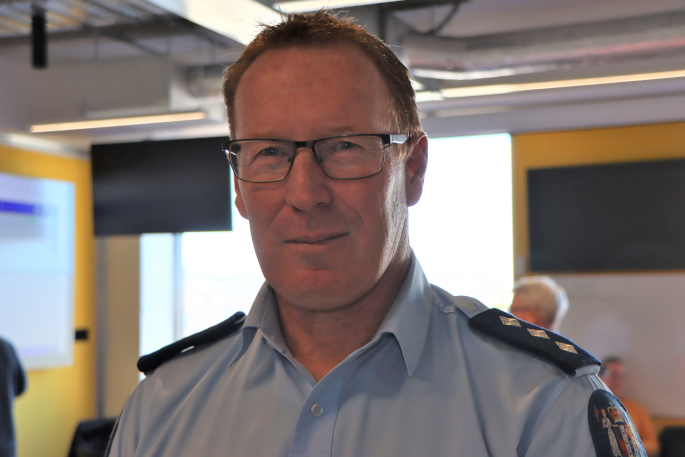 Bay of Plenty police search and rescue manager Phil Gillbanks. Photo: Taylor Rice/SunLive.
Bay of Plenty police search and rescue manager Phil Gillbanks. Photo: Taylor Rice/SunLive.
“One of our key takeaways will be figuring out each other’s capabilities, and keeping up to date with the capability of each organisation we work with.
“The other benefit from this is relationship management. Rather than coming together in a time of crisis, and coming together in a training exercise, we are able to understand personalities, people and what we all bring to the table.
Phil says having an immediate action plan the police search and rescue team can refer to is also a great help, and is another benefit of the training.
He adds himself and the police team are hoping to run an on the ground exercise of this stranded cruise ship scenario sometime this November.

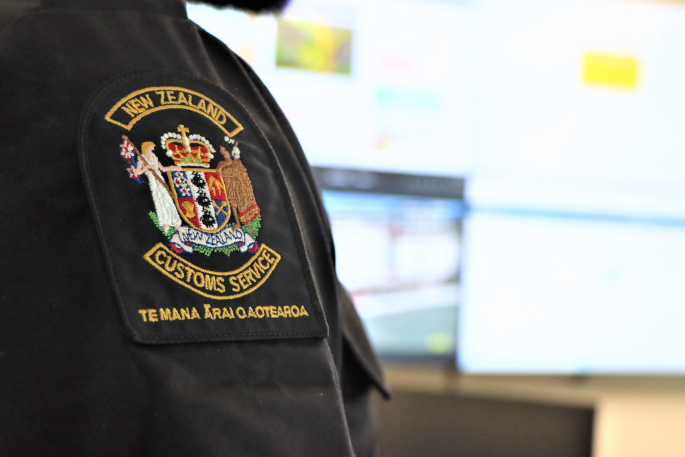

0 comments
Leave a Comment
You must be logged in to make a comment.